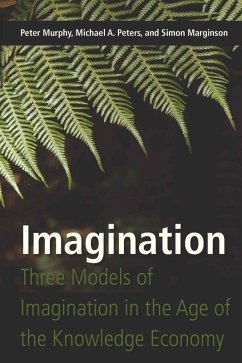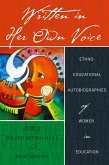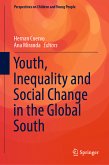Advancement in the arts and sciences is a primary driver of economic production and social policy in post-industrial societies. Imagination steps back and asks 'what advances the arts and sciences?' This book explores the collective, social and global dimension of human imagining-and the ambivalent relationship of social institutions, including universities, schools, economies, media and culture industries, to the collective imagination. Basic discovery requires high levels of creative thinking: Imagination looks at the social conditions that make path-breaking thought possible on a large scale. It examines the role of aesthetic, pictorial, digital, paradoxical and other imaginative styles of thinking, and the times and places in which such styles become socially prominent and a significant force in economic and cultural production. It looks at successful societies as they are approaching their peak, when new ideas are driving them forward.
Dieser Download kann aus rechtlichen Gründen nur mit Rechnungsadresse in A, D ausgeliefert werden.
«Imagine three intellectuals with a plank. Imagine them standing on the plank, looking under it, to see what is holding it up. Imagine them designing and building a new plank. It resembles a Hawaiian invention, and it might be a surfboard. Scramble on back, and hold tight, for this will be some ride. In an academic culture which is often hollow and repetitious, this book offers something that is really new. It does not merely argue, but shows imagination by example. It innovates both in content and form. This is a major achievement.» (Professor Peter Beilharz, Professor of Sociology, La Trobe University)
«This collection provides original and often counter-intuitive insights into central issues facing public institutions, particularly universities, in a globalizing and increasingly knowledge-based economy. It is almost head-spinning in its challenges to prevailing orthodoxies from across the intellectual spectrum, and the capacity to crash-merge ideas that have traditionally inhabited distinct realms to generate original knowledge syntheses.» (Terry Flew, Professor of Media and Communication, Creative Industries Faculty, Queensland University of Technology, Brisbane, Australia)
«By turns informative, infuriating and inspirational, Murphy, Peters and Marginson's Imagination is clearly the most critical of the three volumes in the series. Perhaps as a result, it is very good to think with.» (Andrew Miler, Professor of Cultural Studies, Monash University)
«This collective volume might have been titled the primacy of the imagination-it elaborates, articulates and almost perfects a theory of the creative act as imaginative re-creation. The contributors raise a wide variety of issues focused around imagination as social practice within the confines of contemporary societies as knowledge economies. For the three authors, the act of creative imagining is a self-perpetuating paradox which institutes new meanings and novel codes of signification. The act of imagination re-structures the human mind in order to face its creative performance and objectifying output. The writers quite firmly assert that imagination does not simply free the mind from the restrictions of the known and its social conditions, but it expands the limits of the known itself and institutes human presence as an act of continuing self-definition. From the ancient Greeks and Plato to the Romantics and the postmodern capitalist economies, this book explores the deep interaction between the need for novel ways of seeing and new practices of creative action. This is a meticulous, passionate and original exploration that simply redefines the parameters of the question.» (Vrasidas Karalis, Associate Professor of Modern Greek, University of Sydney)
«Who would want to demur from the sentiment that imagination is a marvellous thing? Do we not live in the age of creative industries, knowledge economies, cyber-space and post-industrialism? Romancing our zeitgeists, and believing in new signs and wonders is a perennial pastime of human societies. Much harder work is to think about imagination, collective forms of creativity and knowledge production. This is the signal achievement of Imagination. Its three authors do the hard work for us and in three different registers: first in foundational terms, that of thinking about imagination and creativity as collective knowledge innovation and production; second, by interpreting the history of imagination as the cumulative production of knowledge across cultures and ultimately as a global process; and third, in the age of cyber capitalism, understanding the transmission of knowledge via digital production and open sourcing of property. This kind of thinking is hard work but good writing that produces lucid critical insight. Murphy, Peters and Marginson demonstrate that critical analysis and
«This collection provides original and often counter-intuitive insights into central issues facing public institutions, particularly universities, in a globalizing and increasingly knowledge-based economy. It is almost head-spinning in its challenges to prevailing orthodoxies from across the intellectual spectrum, and the capacity to crash-merge ideas that have traditionally inhabited distinct realms to generate original knowledge syntheses.» (Terry Flew, Professor of Media and Communication, Creative Industries Faculty, Queensland University of Technology, Brisbane, Australia)
«By turns informative, infuriating and inspirational, Murphy, Peters and Marginson's Imagination is clearly the most critical of the three volumes in the series. Perhaps as a result, it is very good to think with.» (Andrew Miler, Professor of Cultural Studies, Monash University)
«This collective volume might have been titled the primacy of the imagination-it elaborates, articulates and almost perfects a theory of the creative act as imaginative re-creation. The contributors raise a wide variety of issues focused around imagination as social practice within the confines of contemporary societies as knowledge economies. For the three authors, the act of creative imagining is a self-perpetuating paradox which institutes new meanings and novel codes of signification. The act of imagination re-structures the human mind in order to face its creative performance and objectifying output. The writers quite firmly assert that imagination does not simply free the mind from the restrictions of the known and its social conditions, but it expands the limits of the known itself and institutes human presence as an act of continuing self-definition. From the ancient Greeks and Plato to the Romantics and the postmodern capitalist economies, this book explores the deep interaction between the need for novel ways of seeing and new practices of creative action. This is a meticulous, passionate and original exploration that simply redefines the parameters of the question.» (Vrasidas Karalis, Associate Professor of Modern Greek, University of Sydney)
«Who would want to demur from the sentiment that imagination is a marvellous thing? Do we not live in the age of creative industries, knowledge economies, cyber-space and post-industrialism? Romancing our zeitgeists, and believing in new signs and wonders is a perennial pastime of human societies. Much harder work is to think about imagination, collective forms of creativity and knowledge production. This is the signal achievement of Imagination. Its three authors do the hard work for us and in three different registers: first in foundational terms, that of thinking about imagination and creativity as collective knowledge innovation and production; second, by interpreting the history of imagination as the cumulative production of knowledge across cultures and ultimately as a global process; and third, in the age of cyber capitalism, understanding the transmission of knowledge via digital production and open sourcing of property. This kind of thinking is hard work but good writing that produces lucid critical insight. Murphy, Peters and Marginson demonstrate that critical analysis and









